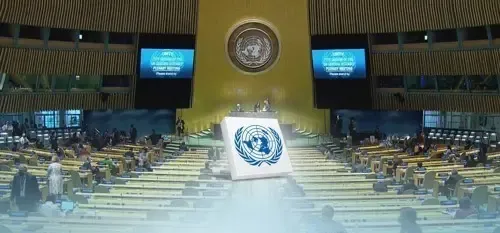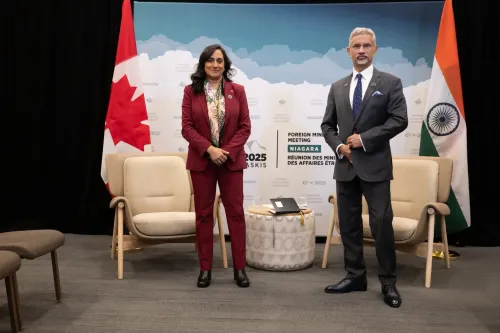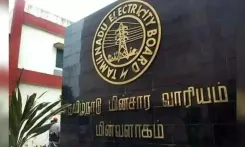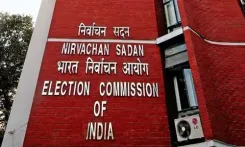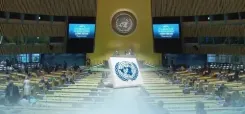What is the Outcome of Former French President Sarkozy's Legal Troubles?
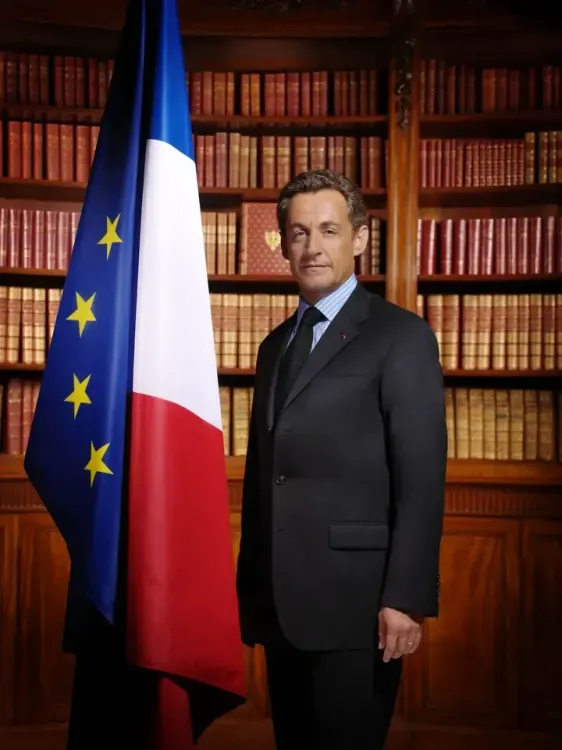
Synopsis
Key Takeaways
- Nicolas Sarkozy sentenced to five years in prison for criminal conspiracy.
- Immediate five-year ban from holding public office.
- Sarkozy's conviction is unprecedented for a former French President.
- He has the right to appeal the verdict.
- This case raises serious questions about political integrity in France.
Paris, Sep 25 (NationPress) On Thursday, a court in Paris sentenced former French President Nicolas Sarkozy to five years in prison "with deferred effect," alongside an immediate five-year prohibition on holding any public office and a fine of €100,000.
This ruling followed Sarkozy's conviction for criminal conspiracy, related to allegations of receiving illicit campaign financing from Libyan leader Muammar Gaddafi to secure his victory in the 2007 elections, as reported by Euro News.
However, the court acquitted Sarkozy of charges related to passive corruption, embezzlement of Libyan public funds, and illegal campaign financing. The ruling clarified that the criminal conspiracy charges were tied to his activities in a group that orchestrated corruption offenses between 2005 and 2007.
Sarkozy, who was President of France from 2007 to 2012, has the option to appeal the court's decision. He may also seek conditional release due to his age. According to French law, he will be summoned within a month by the public prosecutor's office, which will inform him of his imprisonment date. This ruling marks Sarkozy (70) as the first former French President convicted of such serious criminal offenses.
Prosecutors alleged that Sarkozy was involved in a deal with Gaddafi, exchanging campaign funds for assistance in restoring Libya's global standing and for leniency towards Gaddafi's brother-in-law, Abdallah Senoussi, who was convicted in France for an airline bombing that resulted in 170 casualties.
During the three-month trial held earlier this year, judges examined various pieces of evidence, including trips to Tripoli in 2005, monetary transfers via offshore accounts, and claims that Sarkozy's administration shielded Gaddafi's former chief of staff, Bechir Saleh. The investigation even considered the mysterious death of a Libyan oil minister, whose notes referenced payments "for Sarkozy."
Sarkozy has firmly denied these accusations, asserting that there is "not a shred of proof" linking Libyan funds to his campaign. His legal team argued that the case is based on dubious documents and testimonies. The case also involves 11 co-defendants, including three former ministers, as reported by Euro News.
This legal battle adds to Sarkozy's ongoing issues, as he has already been convicted in two other cases — the "Bygmalion affair" concerning his 2012 campaign spending and the "Bismuth case" linked to corruption and influence peddling. Previously, he was subjected to wearing an electronic ankle bracelet from January to May as a penalty. Sarkozy has appealed to the European Court of Human Rights (ECHR).

